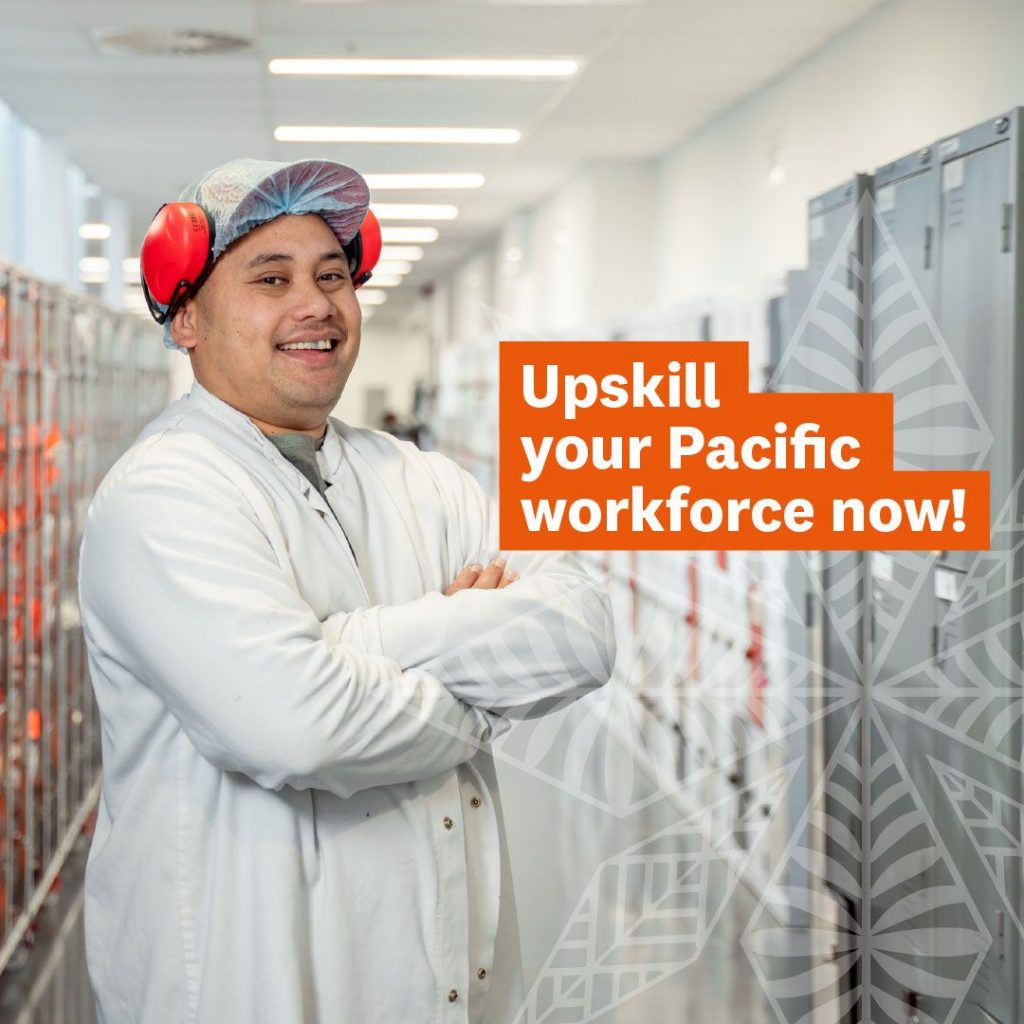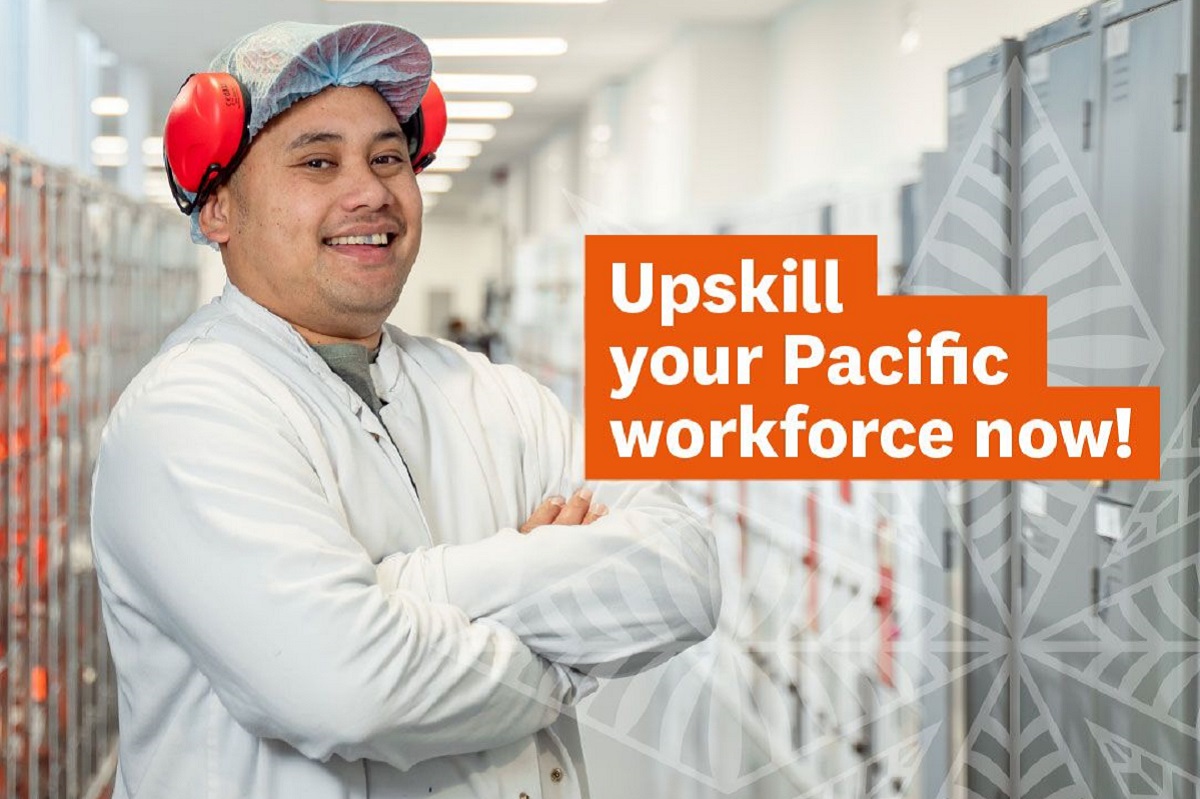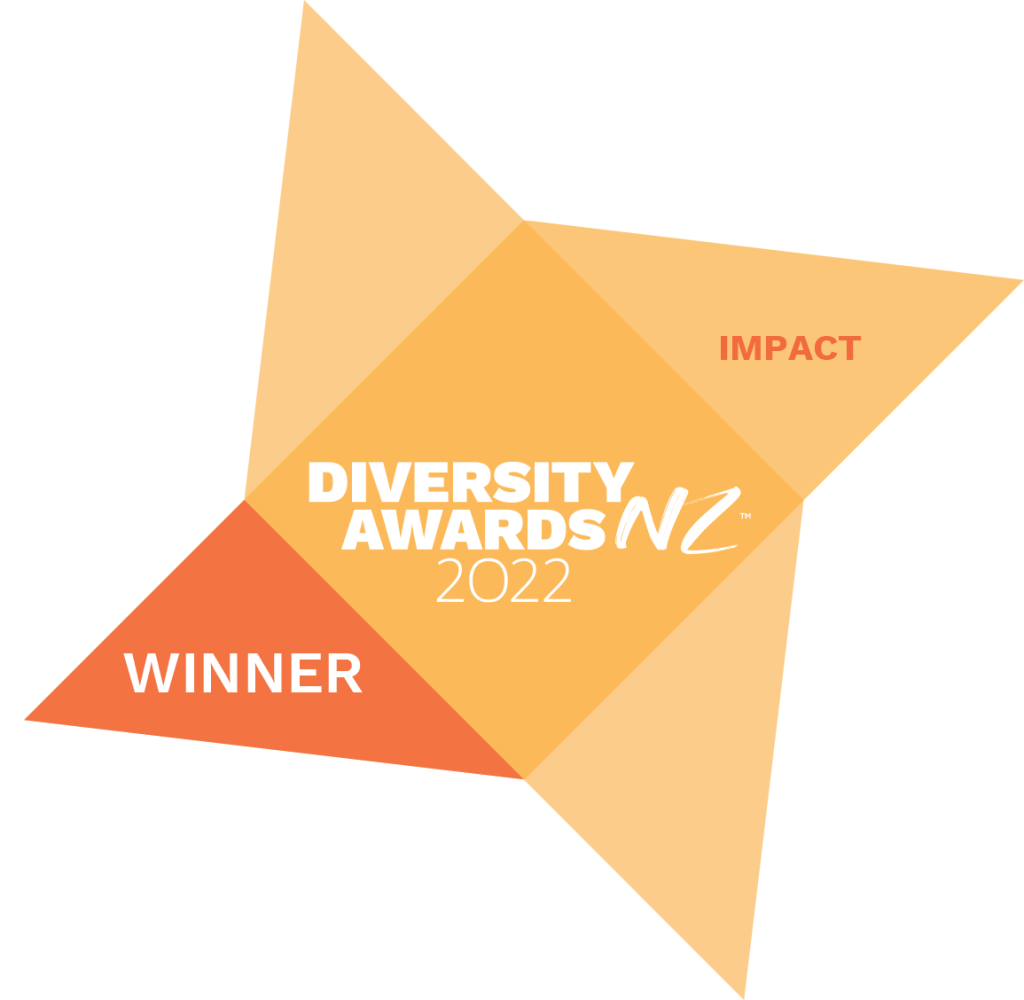Imagine the last two years without the digital skills to manage everyday life basics online. It would mean a limited connection to friends and whānau, and things like paying bills, watching Netflix or accessing daily news, would not have been as easy. Connecting, working, learning and transacting would have been much harder without the digital skills to navigate the ups and downs of a pandemic.
If 2020 taught us that digital skills were important, then 2021 showed us they’re essential – for everyone. That is where our innovative new programme, Future Ready: Life Online comes in. It’s a new course designed to grow the digital skills of our Auckland Pasifika population and foster a digital mindset.
Digital inclusion
Research on digital skills from the PIACC study in New Zealand tells us that 1 in 5 Pacific people between the ages of 16 and 65 may use some technology but have no computer experience, have not passed a simple computer-use assessment, or have declined to use a computer. This is twice the rate of non-Pacific populations and is a worrying digital exclusion statistic – according to a recent government report.
There was a consistent view among interviewees that the pandemic highlighted the digital divide in New Zealand. They commented that during the pandemic’s Alert Level 3 and 4 lockdowns in 2020, the proportion of Pacific people who struggled to work, help their children study and access essential information and services was high compared to non-Pacific populations.
It’s worth sharing some of the first-hand experiences gathered in this report:
I [work with] church communities located as far north as Auckland’s North Shore and as far south as Invercargill. We found many, many people in our Pacific community were without access to basic safety information through lack of skills or devices to go online.
Community leader
The first lockdown made us realise just how vulnerable some of our people are without online access. It’s a terrible situation in a global pandemic, obviously. But actually, it’s not a good situation, generally, as the whole world increasingly goes online. Our people need to know how to shop online for groceries, to the bank… the basics.
Community leader
Interviewees described how the 2020 lockdowns changed people’s view of the importance of digital inclusion — from seeing people unable to access services or stay socially connected, through to appreciating what could actually be delivered online.
COVID made our community realise the world is changing — fast. Before COVID, tech was considered something that belonged to other people. Now, it’s considered essential to our community too.
Organisational leader
Moving forward
The good news is that digital skills can be taught – and once confidence and skills are unlocked, people are equipped with these skills for life. A digital skillset at work is key for now and the future – consider tech changes in the way we communicate, receive payslips, and report health and safety data, as well as have the confidence to engage with digital change at work.
“Everyone should be able to participate fully in the digital world because digital technologies increasingly impact all aspects of our lives, from smartphones and online services to artificial intelligence.”
NZ Government in its blueprint document
Future Ready: Life Online is a unique programme because it teaches digital literacy in a Pacific cultural context. Thriving online depends on skills and confidence.
“In order for our Pasifika people to move with the times, we need to also move with technology or we will be left behind. Learning basic online skills is just the beginning of a whole new world that will help participants save time and money.”
Upskills Programme Manager, Tafā Iakopo
What is Future Ready: Life Online?
- A short (16-hour) in-work training course, delivered over 8 weeks during work hours (2 hours per week or tailored to suit your operations)
- Dynamic, hands-on learning
What will my employees learn?
- How to use a digital device and software
- Internet basics – connecting to wi-fi, using search engines, understanding websites and information on the internet
- How to stay safe online – passwords, secure sites, junk and spam
- Confidently use workplace meeting platforms like Zoom and Teams
- Communicate with others via online messaging apps
- Create and deliver a digital presentation
- How to foster a learning mindset for digital
- How to use online learning platforms
Next steps
Upskill your Pasifika workforce today and create a positive change for your staff – at home, at work and in their communities. Talk to Tafā for more information about getting started, tafa@upskills.co.nz; phone 022 067 1770 or visit our Life Online course page for more information.







